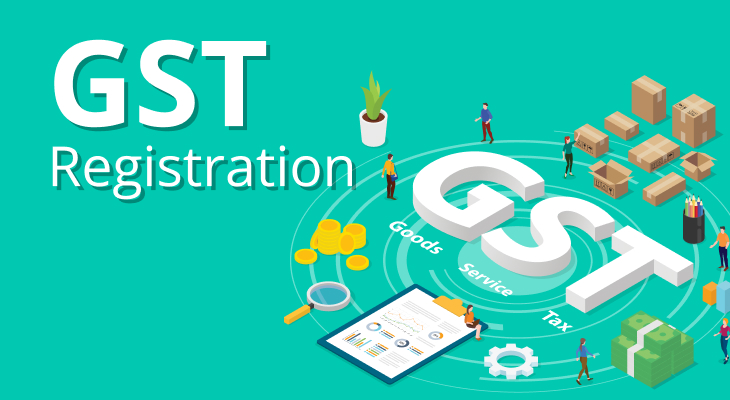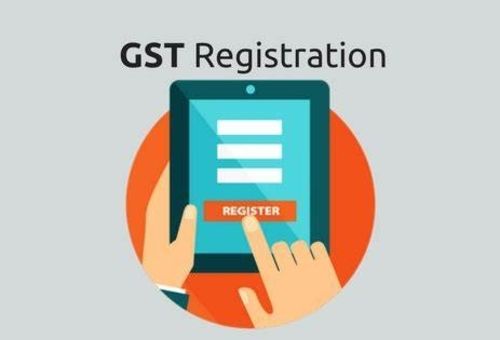Why Singapore GST Registration is Important for Your Startup
Why Singapore GST Registration is Important for Your Startup
Blog Article
Maximizing Tax Efficiency: Professional Tips on Navigating the GST Enrollment Labyrinth for Little Businesses
Navigating the intricate landscape of Item and Provider Tax Obligation (GST) enrollment can be a labyrinthine job for tiny services aiming to maximize their tax obligation efficiency. Comprehending the qualification criteria, thorough paperwork requirements, tactical timing factors to consider, and experienced registration process suggestions can dramatically influence a business's financial standing. Conformity with GST policies is paramount, and sticking to finest practices can simplify operations and stop prospective mistakes. In this conversation, we will discover professional insights and actionable suggestions that can equip small companies to browse the GST registration maze successfully and optimize their tax obligation effectiveness.
Eligibility Requirements
Qualification needs for Small Business GST Enrollment incorporate details criteria that businesses should meet to comply with tax regulations. To qualify for GST registration, an organization should have an annual turnover exceeding the limit established by the tax obligation authorities, which varies by country.

Documents Needs
To efficiently finish the procedure of GST registration, small companies must guarantee they have all essential documents in order. The called for paperwork usually includes evidence of organization registration or address, identification and incorporation evidence of business owner, photos, bank account information, and evidence of the major business. Furthermore, businesses require to provide information of their business activities, consisting of the goods or services provided. It is essential to ensure that all files are exact, up to day, and in the specified style to stop delays or denials during the registration procedure.
Maintaining all essential documentation arranged and conveniently easily accessible can streamline the enrollment procedure and aid businesses comply with the requirements successfully. Careful interest to detail and adherence to the documentation guidelines are essential for a successful GST enrollment procedure for tiny organizations.
Timing Factors To Consider
Considering the important documents needs have been thoroughly addressed, the following critical facet for small companies getting started on the GST registration procedure is the tactical monitoring of timing considerations. Timing plays a pivotal role in GST enrollment, affecting not only compliance yet likewise financial facets of business. Small companies require to carefully plan the timing of their GST registration to click to read make the most of benefits and decrease possible threats.

Moreover, organizations must line up the timing of their GST enrollment with their operational preparedness. Appropriate preparation, such as updating accountancy systems and training staff, is important to effortlessly integrate GST requirements into everyday operations. By purposefully managing timing factors to consider, small companies can navigate the GST registration procedure efficiently and optimize their tax obligation performance.
Registration Refine Tips
Successfully navigating the GST registration process needs small businesses to carry out strategic and positive enrollment process pointers. One essential tip is to make sure all essential documents are conveniently available prior to starting the registration procedure. This consists of business enrollment records, evidence of address, financial institution declarations, and identification evidence of business owners. Verifying the precision of the information supplied is similarly crucial to avoid delays or rejections.
In addition, understanding the limits and needs for GST enrollment based upon the details state or region where business operates is important. Some states have different turnover thresholds that cause mandatory registration, so being notified about these thresholds can aid organizations plan ahead.
One more important idea is to take into consideration looking for professional support from accountants or tax obligation professionals who focus on GST registration. Their expertise can simplify the process, reduce errors, and make sure conformity with all laws.
Conformity Finest Practices
Small organizations must focus on conformity to avoid charges and keep a great standing with tax obligation authorities. Small service proprietors need to on a regular basis assess federal government guidelines and look for expert recommendations if required to guarantee they are meeting all demands. read the article By integrating these conformity ideal techniques right into their operations, small companies can navigate the complexities of GST enrollment with self-confidence and performance.
Verdict
To conclude, small companies can navigate the GST registration maze by ensuring they meet eligibility criteria, collect called for documents, take into consideration timing implications, follow registration procedure tips, and follow conformity best practices. By making best use of tax obligation performance via correct GST enrollment, organizations can boost their monetary monitoring and procedures.
Browsing the elaborate landscape of Goods and Services Tax Obligation (GST) visite site enrollment can be a labyrinthine task for small businesses intending to optimize their tax effectiveness.Eligibility needs for Small Organization GST Enrollment encompass specific standards that organizations need to satisfy to conform with tax policies. The required documents typically consists of evidence of service registration or address, identity and incorporation evidence of the organization proprietor, pictures, financial institution account information, and evidence of the principal place of company. Furthermore, organizations require to offer information of their company tasks, including the goods or services provided.Effectively navigating the GST registration procedure needs small organizations to execute aggressive and tactical enrollment process suggestions.
Report this page